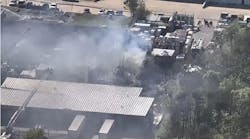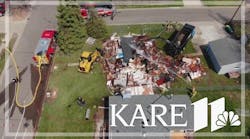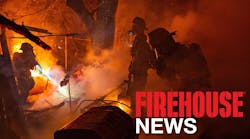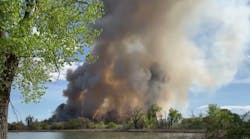Local governments across the nation continue to grapple with the "perfect storm." The effects of the worst economy since the Great Depression, including unemployment, declining property values and retail sales and a populous that has grown intolerant of tax increases, have collectively contributed to significant declines in state and local revenue. As a result, localities are facing the prospect of draconian cuts to many programs and services. Even public safety budgets, which in some cases were spared from significant funding reductions in previous years, can no longer be expected to remain whole.
Fire service leaders, both career and volunteer, are advocating their departments' financial needs with the same tenacity as answering a multi-alarm incident. Although budget negotiations and decisions about funding allocation often take place at the highest levels of local government, there are a number of steps that front-line firefighters and company officers can take to help their leaders maintain public support and place their departments in a better position to weather the "perfect storm." These strategies are not new or unique and they are equally important during good times and bad.
- Keep a positive attitude — With the ever-present media coverage of the economy and its effects on local governments, it is often challenging to maintain a positive attitude while serving your community. Attitude has a direct impact on morale, particularly that exhibited by those in leadership positions. Negative attitudes are contagious and serve to exacerbate the effects of the somber news of the day.
- Continue to serve responsibly — One of the largest drains on a fire department budget is overtime costs, which increase with absentee rates. Sick leave is a benefit that should be used only when one is actually sick, never as a flexible opportunity for time off. In the era of shrinking budgets, fire departments are expected to hold the line on overtime costs. As a result, many departments are finding it necessary to absorb unexpected absences by short-staffing units or placing entire fire companies out of service.
- Stay healthy and work safely — Firefighting remains labor intensive and places tremendous physiological stress on the body. Firefighters must pay close attention to their health and physical condition to prevent injuries or even death in the line of duty. In addition, firefighters must perform their emergency duties safely by wearing the appropriate personal protective equipment (PPE), following all standard operating procedures (SOPs) and avoiding unnecessary risks. Injuries often result in long-term absences for career and volunteer firefighters, straining overtime budgets and reducing the availability of volunteer resources in the community.
- Operate vehicles and equipment safely — Always drive and operate vehicles and equipment safely, and always wear your seatbelt. First, to prevent death, injury and property damage; second to avoid costly liabilities to the locality; and third to avoid disruption of service due to damaged vehicles and equipment.
- Maintain and account for equipment and supplies — During lean times, funding for repair and replacement of equipment is minimal at best. It is incumbent upon everyone to maintain all equipment in good working order so as to extend service life expectancy as long as possible. Always account for equipment and supplies and guard against avoidable losses.
- Conserve utilities and vehicle fuel — The operation of fire stations, emergency service facilities and fire apparatus require significant expenditures for utilities and fuel. Remain vigilant in conserving utilities whenever possible by turning off unnecessary lights and appliances and keeping station bay doors closed during the winter. At incident scenes, shut down fire apparatus that is not being used, if it is safe to do so.
- Right-size your requests for service — The first-arriving unit/incident commander at every incident must assess the conditions on scene and, if warranted, downgrade the response of additional units or clear those not needed to handle the incident. This practice, of course, does not prohibit incident commanders from upgrading a response or calling for additional units depending upon the situation and anticipated needs.
- Provide excellent customer service — Everyone must strive to provide excellent customer service, even during these difficult times. Many of those whom we serve are hurting as a result of the recession. Firefighters and company officers must anticipate uneasiness and even anger when interacting with those who have fallen on hard times. The golden rules of customer service including empathy, going the extra mile and being "nice" will continue to serve the fire service well during the current economic climate.
- Educate the public — Be prepared to explain fire and EMS operations to those who may be less informed. Because the average taxpayer or community activist does not understand the technical aspects and demands of our jobs, firefighting and emergency medical operations are easy targets for criticism in the media and other public forums. Seek out opportunities to provide this education on a "good day" as opposed to waiting for an incident.
- Protect your image — Maintaining the public's trust is critically important. Fire departments that are regarded by local government leaders as well-run organizations and those that have built a good rapport with the citizens they serve stand to benefit the most as budgets are scrutinized and reduced. In contrast, those fire departments fraught with internal turmoil or that have poor public relations stand to lose the most. Stay aware of the environment in which you are operating and how your activities may appear to taxpayers.
Recent economic trends have many economists re-evaluating their forecast models. Many agree that a sustainable recovery may be years in the future; some predict that various drivers of our economy that have recently disappeared may never return. What is clear is that local governments will likely experience a prolonged period of reduced revenue. Therefore, members of the fire service are likely to be faced with continued personal and professional sacrifices into the future. We as leaders must remain vigilant in modeling these simple strategies to ensure we are able to weather the "perfect storm."
EDWARD L. SENTER Jr., EFO, is the fire and EMS chief of Chesterfield County, VA. He was previously the fire chief of Norfolk, VA, and served with the Norfolk Fire-Rescue Department for 27 years. Senter holds a bachelor's degree in fire administration and a master's degree in public administration and is a graduate of the National Fire Academy's Executive Fire Officer Program.





